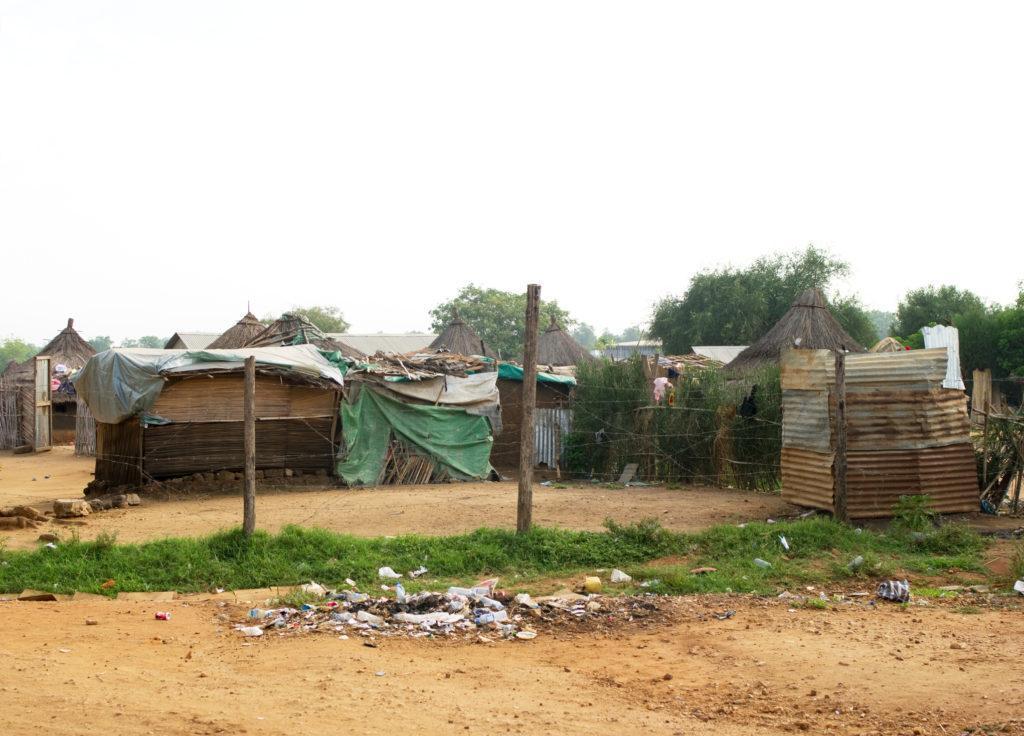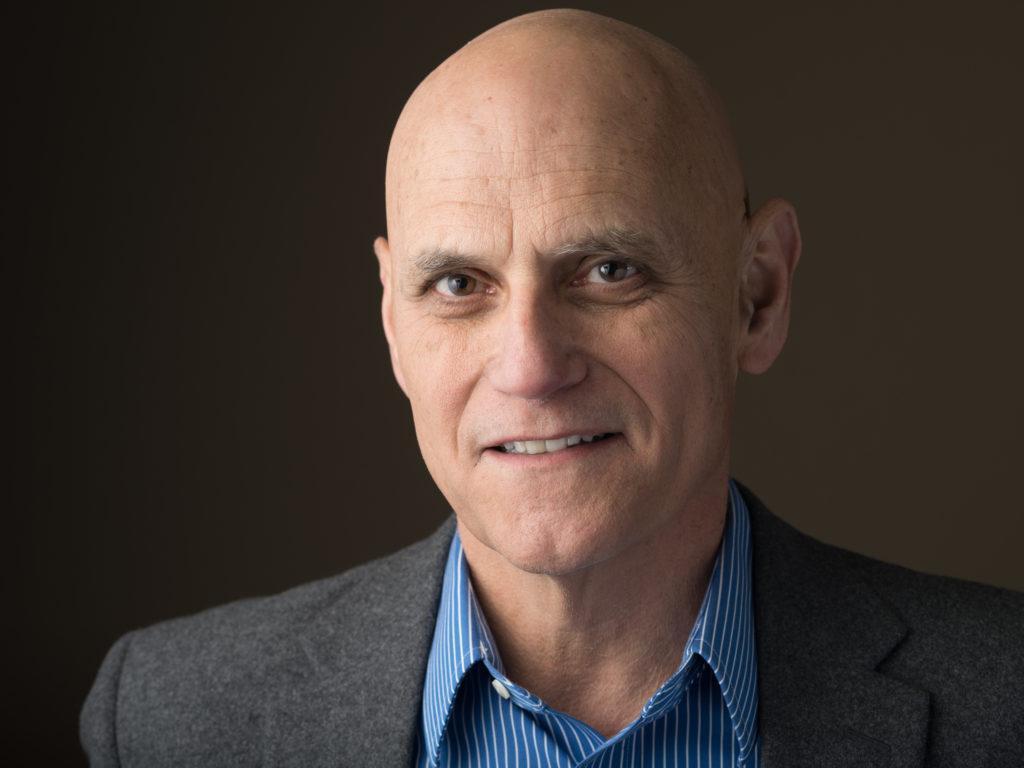Trauma and Ukraine: The World Health Organization Leveraged Psychological Science to Help Prepare Us for This Moment

Expert commentary by APS Fellow Steven C. Hayes, University of Nevada, Reno. Photo above: Encampment for internally displaced people in South Sudan.
We are all nearly traumatized watching what is unfolding in Ukraine. As difficult as it is to watch from afar, we know it must be 1,000 times worse for those in the war zone, who are facing the possibility of domination or death. Let’s not forget the Russian soldiers carrying out horrific orders and suffering the moral injuries that will torment them for a lifetime.
Addressing a crisis like this means looking directly at the problem-solving needs that arise in times of war, danger, or difficulty and empowering ourselves to meet these needs. Taking human ownership of the trauma that results from such crises is not just a matter of instrumental action but also one of maintaining psychological resilience under unbelievable circumstances.

Here, I believe, we need to be guided by high-quality behavioral science. Based on literally thousands of psychological studies, we know some of what needs to be done. In the last decades, the world has faced situations somewhat similar to the war in Ukraine over and over again. Several years ago, in fact, the World Health Organization (WHO), the premier public health institution in the world, had the foresight to leverage psychological science to help us become just a bit more prepared for this awful moment.
In 2013, a civil war began in the new nation of the South Sudan and raged for several years. Famine and disease cruelly added to the misery. Refugees poured out of the country, mostly women and children, escaping horrific violence, sexual attacks, and starvation. One million of them arrived in Uganda, usually with nothing but the clothing on their backs.
Related: Collected Research on War, Conflict, and Authoritarianism
WHO went looking for an intervention that could be of help. It made the wise decision not to focus on the usual methods that target psychiatric syndromes, given that war can produce almost every kind of psychological problem you can name. Instead, WHO looked for methods that fostered resilience, settling on a single set of processes called “psychological flexibility” and an intervention method that targets them, Acceptance and Commitment Therapy (ACT; also known as Acceptance and Commitment Training). I originated ACT 40 years ago and have since spent decades at the University of Nevada, Reno studying how to use it to alter flexibility processes.
In a gold-standard, randomized controlled trial with nearly 700 South Sudanese refugees in Uganda, WHO delivered ACT in a group format using an audiotape and a graphic novel or cartoon book (necessary because the rate of illiteracy in the South Sudan is the highest in the world—only about one-quarter of the population can read). No single problem was targeted—these survivors struggled with every kind of psychological problem, from post-traumatic stress disorder (PTSD) to depression, from explosive anger to an inability to sleep. Instead, what was targeted was psychological flexibility itself.
The ACT self-help program, which WHO called Self-Help Plus (SH+), significantly reduced psychological distress across the board, leading to improvements in almost all monitored areas (e.g., depression, explosive anger, well-being, disability) with an overall effect size as large as or larger than that found for self-help in the developed world (Tol et al., 2020). Importantly, these effects occurred regardless of the extent of participants’ initial distress or exposure to violence. No adverse events were found to be linked to the program—a major factor given the painful history of other well-meaning crisis intervention programs that inadvertently made problems worse, as controlled research revealed.
Encouraged, WHO then turned its eye to the prevention of mental disorders. It used SH+ with nearly 650 Syrian refugees in Turkey who were distressed but had not yet developed a mental health disorder. In the first randomized prevention trial ever conducted among war refugees who did not yet have a diagnosable disorder, the ACT self-help program was found to cut later emergence of mental disorders by nearly half (Acarturk et al., 2022).
These studies and others have led to a form of recognition by WHO that seems relevant to us all. WHO now distributes ACT self-help free worldwide in the form of Doing What Matters in Times of Stress: An Illustrated Guide, recommending this approach for “anyone who experiences stress, wherever they live, and whatever their circumstances.” The book and tapes are available in 21 languages, including English, Ukrainian, Russian, and Romanian.
This unique recommendation is based on WHO’s own research, but it corresponds to more than 900 ACT randomized controlled trials (bit.ly/ACTRCTs) and several thousand other studies indicating that psychological flexibility is not only relevant to narrow areas of “mental illness”—it changes the trajectory of human lives. My book A Liberated Mind (2019) walks through the decades of behavioral science that make this point and show how to apply it. Scores of other ACT self-help books by excellent authors and researchers are available to back up that message in almost every area of life.
Becoming psychologically flexible means learning how to be more emotionally and cognitively open, focusing consciously on what’s present inside and out, and then using that flexibility to focus on values and values-based actions. Flexibility processes do not just ameliorate or prevent psychiatric syndromes—they empower humans to respond to virtually every problem area. This flexibility can be learned in a step-by-step fashion and applied to highly stressful situations, integrating the painful experiences that may arise into a pattern of post-traumatic growth.
As the world watches the current horror in Ukraine play out, it is time to consider how to put healthy psychological adjustments into our heads, hearts, and hands.
APS Fellow Steven C. Hayes is a Foundation Professor of Psychology at the University of Nevada, Reno. A charter member of APS, he was the founding editor of the Observer and the association’s first Secretary-Treasurer. See his 2018 article in Clinical Psychological Science, “The Future of Intervention Science: Process-Based Therapy.”
Feedback on this article? Email [email protected] or scroll down to comment.
References
Acarturk, C., Uygun, E., Ilkkursun, Z., Carswell, K., Tedeschi, F., Batu, M., Eskici, S., Kurt, G., Anttila, M., Au, T., Baumgartner, J., Churchill, R., Cuijpers, P., Becker, T., Koesters, M., Lantta, T., Nosè, M., Ostuzzi, G., Popa, M., Purgato, M., . . . Barbui, C. (2022). Effectiveness of a WHO self-help psychological intervention for preventing mental disorders among Syrian refugees in Turkey: A randomized controlled trial. World Psychiatry, 21, 88–95. http://doi.org/10.1002/wps.20939
Hayes, S. C. (2019). A liberated mind: How to pivot toward what matters. Penguin/Avery.
Tol, W. A., Leku, M. R., Lakin, D. P., Carswell, K., Augustinavicius, J., & Adaku, A. (2020). Guided self-help to reduce psychological distress in South Sudanese female refugees in Uganda: A cluster randomised trial. Lancet Global Health, 8(2), E254–E263. http://doi.org/10.1016/S2214-109X(19)30504-2





APS regularly opens certain online articles for discussion on our website. Effective February 2021, you must be a logged-in APS member to post comments. By posting a comment, you agree to our Community Guidelines and the display of your profile information, including your name and affiliation. Any opinions, findings, conclusions, or recommendations present in article comments are those of the writers and do not necessarily reflect the views of APS or the article’s author. For more information, please see our Community Guidelines.
Please login with your APS account to comment.